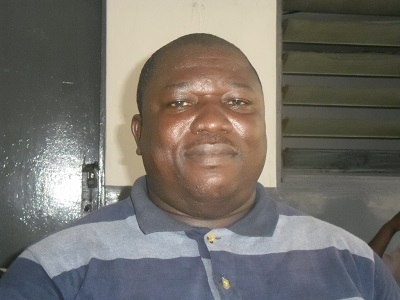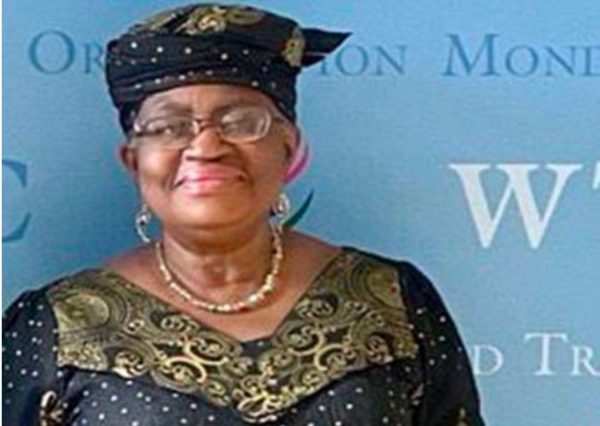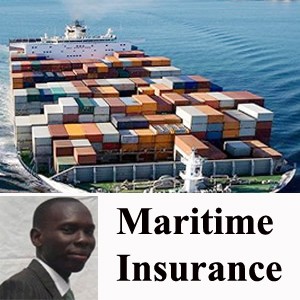How Transportants Can Develop Blueprint To Transform Nigeria – Babatunde

By Kenneth Jukpor
Dr. Samuel Babatunde is the Registrar of Ports and Terminal Management Academy of Nigeria (POTEMAN). In this exclusive interview with MMS Plus, he highlights the dynamics of human capacity building in port and terminal management. He also appraises other pertinent port sector issues. Enjoy it:
How would you rate the present state of activities in Nigeria’s maritime sector?
In the industry, there are a lot of challenges. Operational challenges, financial challenges, human capital challenges and geographical challenges. Bearing in mind that Nigeria is an import oriented nation and most of the goods at Nigerian port also go to other countries like Niger Republic, Mali, among others.
We also need to bear in mind that the current port system we have today was established far back in 1954 under the Act of Parliament and we are still using the same ports. Whereas the volume of cargo has increased drastically, the port infrastructure hasn’t made commensurate changes and this calls for bigger ports and deep seaports. We are all aware of the deep seaport that is coming up in Lekki but that is not enough. We also have heard about the deep sea port in Akwa Ibom state. I have been there but we have not seen much development. There are also plans to have the Olokola deep seaport between Ogun State and Ondo State as well as the Badagry deep seaport. All these are solutions to the existing challenge in the industry but they wouldn’t be viable solutions until they kick-off.
However, it is also pertinent to note that the industry requires human capital to be able to function effectively. There is a need for manpower capacity building to meet up the challenges in the industry. Even if you have the right equipment and the infrastructure, people would be assigned to operate this system. If you talk about the port logistics, people will also work in the ports and we will continue to look at what we call Key Performance Management in the area of port occupancy, port recruit that takes place in the port. This can only be achieved by the presence of effective human capital in order to put things together in the industry.
At POTEMAN, we are coming up with the ABC of Port Terminal Operations and Management. It is the first of its kind and it would usher in those who are coming into the industry and to reframe the mindset of those who are already in thre. I have always challenged those working in the industry. How many of these individuals are certificated in port and terminal operations and management? Having a degree in transport and logistics is quite different from port operations and management and that is the essence of the Academy.
The academy helps to package a curriculum that will span through the structure of the framework, marketing, responsibilities, institution development and other aspects in the industry. A potential human capital after been trained would be able to discharge his or her duties and enhance the performance management of the port system. This would automatically increase the productivity and profitability of the port.
At a recent summit of the Nigerian International Maritime Port and Terminal (NIMPORT) Conference organized some weeks back, NPA lamented that Nigerian ports handled a total of about 78 metric tonnes of cargoes, while the maximum capacity of the ports is about 40 million metric tonnes. What is your perspective on this imbalance?
The imbalance is based on the fact that presently, there is a disparity between the Western ports and the Eastern ports and we can see the influx of cargo through the Western ports and less of cargoes through the Eastern ports. The academy in 2012 organized a workshop termed “Turning Eastern ports into Strategic Business Centre”.
The objective of that was to educate, inform and strategize. The people in the eastern part of the country need to be able to patronize the eastern ports despite the challenges. Questions have been raised with regards to the distribution of the cargo turn out that is coming into the country, majorly through the western ports and that is why we are experiencing port congestion which is the maximum utilization of the port capacity either in the area of land capacity, equipment, geographical strength, finances, human capital or logistics. It has been overstretched. That is why the short fall of that has resulted to the traffic management in our port. The western ports have been over utilized, yet the eastern ports barely utilized.
We also need to give kudos to the various terminal operators especially at the western ports. They have put in tremendous efforts to be able to cope with this increased traffic, nevertheless, we still have shortfalls. That is why some cargo charges are very high.
According to Otunba Kunle Folarin, every import cargo that passes through the western ports constitutes nothing less than 35% of cost implication. If we talk about the dilapidated roads that we have on the port system, it also constitutes another problem in the port environment.
In 2012, the Nigerian Shippers Council (NSC) championed a Northern trade corridor conference. Under the Northern trade corridor, people from Mali, Niger Republic were invited to Nigeria. They were ministers for transports, trade and investments. The essence of that was for them to bootstrap the cargo going into their country through Nigeria. But then, most of their cargoes pass through Ghana.
On the Northern agreement and conference, we have not seen any development. Do you have an idea why it has not yielded any positive results?
There has been development on that. This development can be felt from the area of Bilateral Agreement or Multilateral Agreement. Again, Nigeria is also expected to put some infrastructure in place especially trailer parks. If goods are going to Cameroon, Niger Republic or Mali and the trucks come, where are they going to stay? Lagos is already congested and these people will need a special trailer park to park their vehicles. As soon as their cargo comes, they should be able to load their vehicles and move to the Northern part of the country.
Although the NSC has brought out the framework for that, it is left for the private sector to invest in those areas and that is another challenge that we have in the implementation of Northern trade corridor trade.
Recently, the Chartered Institute of Transport Administration (CIoTA) Nigeria got their charter as the bill was passed into law. It’s a boost for the academia and the need for professionalism in the transport sector. How would you rate this development?
It is a wonderful development because various institutions including Charted Institute of Logistics and Transport (CILT) Nigeria made advancement for charter. Nigerian Institute of Shipping also moved for charter. Having a transport institute become chartered is a plus for us and every institute should collaborate with CIoTA in the area of building a new transport industry for Nigeria.
For example, there is going to be a summit by CIOTA in Abuja in December. It is going to be a strategic meeting to come up with a blue print for the transport industry in conjunction with the various government agencies including NPA, NSC, NIWA, NIMASA, among others. We need to have a complete blue print to help in reducing the various challenges that are been faced by various shippers or transporters in the industry.
How can industry operators can key into your programmes to develop their capacity?
The ABC of port and terminal operations and management is a new programme and it is aimed at increasing the information, understanding and knowledge of the people who are already in the industry or those who want to gain entrance into the industry so that they can be equipped with the necessary information, skills and capacity to be able to function efficiently in the industry. It will also enhance performance management of the port and terminal industry.
One of the issues in port and terminal today is that of cargo theft and vandalization. What is your opinion on how to address this?
The various theft or sea robbery as we experience in the port today has reduced drastically. We need to understand the fact that we cannot totally eradicate it but it can be reduced to the barest minimum. The domestication of ISPS code will go a long way and even the domestication of maritime labour code will greatly assist in that regard. My take is that the terminal operators should be held responsible because the various terminal operators under the port concessioning are in charge of all the cargoes while the NPA is in charge of ships and navigation including dredging of the port and others.
The area of cargo management is purely domiciled with the terminal operators. I believe that the various terminal operators today will live up to expectation because by the time they are compelled to pay various compensation for loss or damages of these consignments; they would have to sit up.
Right now, the concession agreement is been reviewed. If you were to suggest one or two things that should be looked at, what would they be?
One of the loopholes that we have observed in the port concession is the aspect of charges and that is why NSC was appointed as economic port regulator to regulate the various charges of the terminal operators. We also need to establish a fact that there are different types of ports and they were at different levels of development when handed over to the terminal operators. The terminal operators have invested massively in building the port to the standard acceptable by the international community. In addition to that, there are levies to comply with in terms of funding and infrastructure.
The truth is that I was expecting that the federal government to borrow the leaf from the telecommunications sector. They gave some kind of waiver to some equipments but I can assure you that the various equipment that you see that the terminal operators are bringing in, they pay 100% duty on them. The question there is that where are they going to get the money back? They have to charge full charges and additional on the various services they render in other to recoup their investments because most of them took loans from the banks. They would definitely charge the consumers of their services.
We are looking at a relatively new administration. What are your expectations from the Minister of Transport for the port sector?
The focus of the Minister of Transport in the last four years was on the area of road transportation, and perhaps for the passenger movement but we want government to shift attention to container or cargo movement via rail. I also want to see better port access roads that can cater for the voluminous activities at the ports today.
We can see an example in Apapa Port where cargoes are conveyed by rail to the Inland Container Terminal that is based in Kaduna. They can transfer up to 100 containers at once at a cheaper rate. To transport a 20ft from Lagos to Kaduna by road, we will be talking about N800,000 to N900,000, by rail it’s less than N200,000. We need more rail connections. We need one to Tin Can Island Port, Warri, Onne and Calabar to aid the whole transport system.





